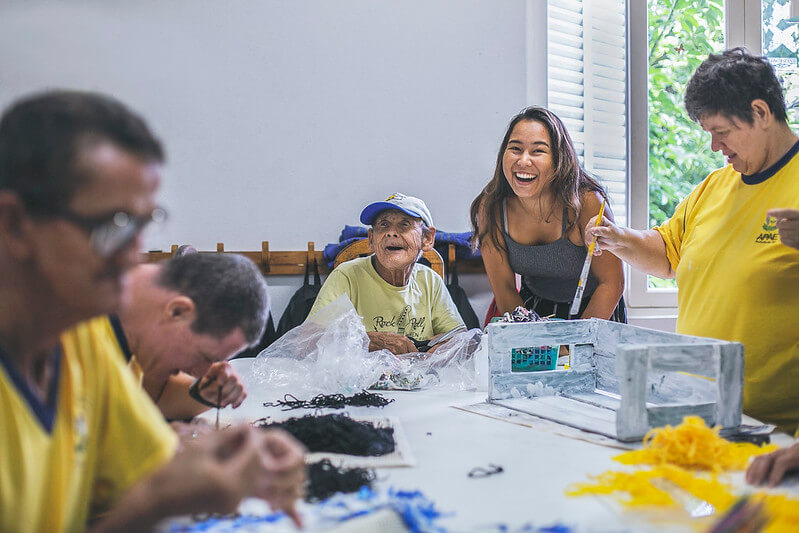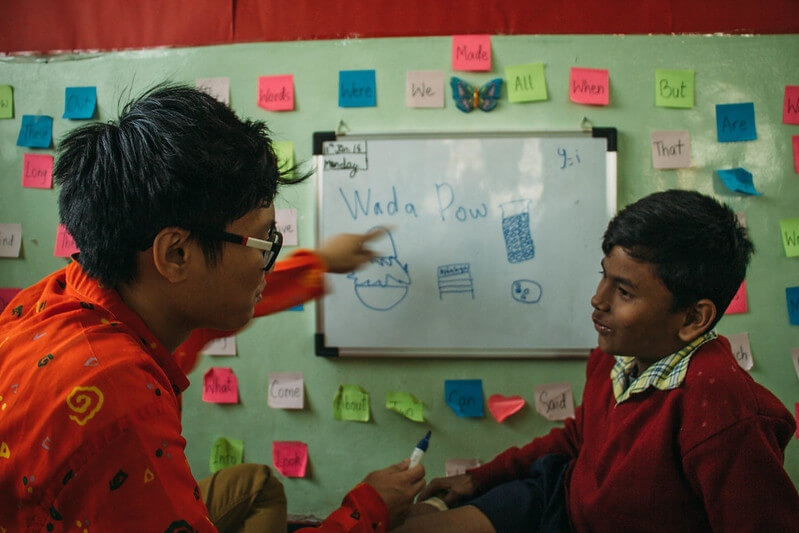Tips for Engaging in a Volunteer Experience

Volunteering gives people the opportunity to work together towards a common goal and become part of something bigger than themselves. The individual goals of the volunteers or organizations can vary immensely, but the overarching purpose remains the same: volunteering gives you the unique opportunity to make a direct impact on society. In order to make a meaningful and responsible impact through your volunteer experience, it’s important to carefully carefully explore the goals and methods.
In this article, we’ll discuss different ways to responsibly engage in a volunteer experience and how those experiences will help you become a better leader.
How to Prepare Yourself for a Volunteer Experience
Here are some suggestions for how to prepare for and engage in your volunteer experience:

Step 1: Create an Inclusive Community
In a volunteer group, you are given the unique opportunity of joining together with a group of people to work towards a common goal. You may bond with some members instantly but others might require more effort. Finding common ground with your group members will allow your team to become more united and better able to achieve your goals.
Be mindful of the needs of others and open to new opinions and ideas. Allowing all members to feel safe will create new opportunities for the team and a safe space for creativity and a diversity of voices and perspectives. Team innovation will drive the most success and will allow all members to have an equal voice.
Step 2: Develop A Safe Learning Environment to Encourage Growth
When entering into a volunteer experience it is valuable to recognize that you have a lot to learn from the leaders, team members, and especially the community you are volunteering with. As challenges arise, it is important to encourage learning opportunities, consider ways to improve, and work towards a common goal.
Being able to recognize mistakes and brainstorm new ideas without judgment creates a safe environment for learning and growth amongst your team. The group becomes resilient to change and able to bounce back from failure by gaining learning opportunities.
Step 3. Research the Community History
Informing yourself about a community will make it easier to connect with community members and understand their needs. Directly speaking with and building relationships with members of the local community is one of the best ways to learn more about a new community. But even from a distance, learning about a community’s current events and history has never been easier.
View timelines and read books on their community’s history, follow local pages on social media, or read current or past local news articles. Researching community history before your volunteer experience will help you gain a better sense of the community’s values, norms, and experiences. Learning about a community’s history can allow your organization to realign its goals based on the community’s needs or experiences.
Step 4. Become More Aware of Your Biases and Assumptions
When entering into a new volunteer experience it is important to be aware of your own cultural norms and the bias they can create. Assuming your cultural norms are universal is called ethnocentrism. Strive to be aware of and open to new ways of thinking and living to avoid potential pitfalls with the volunteer community and members.
Building relationships in your volunteer community and collaborating with others is critical to creating a broader point of view. By collaborating with your team you can help point out each other’s blindspots, and together create a stronger and more thorough plan of action.
Step 5. Develop Effective Social Perspective Taking
Social perspective taking is the ability to infer, consider, and evaluate others’ perspectives. Social perspective taking allows you to better engage in new settings with people whose viewpoints may be unfamiliar. A key factor in social perspective taking is being open to listening and demonstrating empathy towards others.
Social perspective taking will help you to more deeply learn about a person or a community and focus on their needs. By exercising your empathy for others through social perspective taking, you can learn to lead others in a more substantial and supportive way.
Step 6. Join Together for a Common Goal
A unique aspect of volunteer work is the strong sense of community built from people coming together for a common goal. When entering into a volunteer experience it is important to be aware of the organization’s goals to better align yourself. Ask questions, discuss past experiences, and offer new ideas for improvement to better work towards the common goal. Creating a shared goal will allow your volunteer group to determine the next steps to take and build more unity and collaboration amongst the group.

Looking For A New Volunteer Opportunity? Apply To Global Citizen Year!
Volunteering is both a great way to make an impact on the world as well as develop leadership and service skills that you can use throughout your life.
Global Citizen Year connects and inspires a network of young leaders – equipping them with the perspective and skills to solve humanity’s most urgent challenges. If you’re interested in building leadership skills for a lifetime of social impact, then apply today!
EXPERIENCE A DAY IN THE LIFE OF
A GLOBAL CITIZEN YEAR FELLOW
Fellow / Ecuador
— Anna del Savio
I work with a group of indigenous artisans that make fair trade jewelry.…
Fellow / Brazil
— Amari Leigh
After my community garden apprenticeship, I like to hang out at the local waterfall with my friends.…
Fellow / Brazil
— Basil Wiering
I often hail a rickshaw into various parts of the city to meet friends and practice street photography.…
Fellow / Brazil
— Fernanda Tornell
I've developed my public speaking skills and encouraged hundreds of people to take care of our planet.…
Fellow / India
— Luciana Ribeiro da Silva
I apprentice with Teach For India and also volunteer with a non-profit working to end child marriage.…
Fellow / Ecuador
— Noah Hapke
I co-teach English classes at the school in my community.…
Fellow / Brazil
— Sarah Murray
My apprenticeship is at a school for people with disabilities where I help to lead gardening, games, and capoeira.…
Fellow / India
— Alana Poole
In the afternoons, I often go on home visits to meet my students' families and understand where they come from.…








